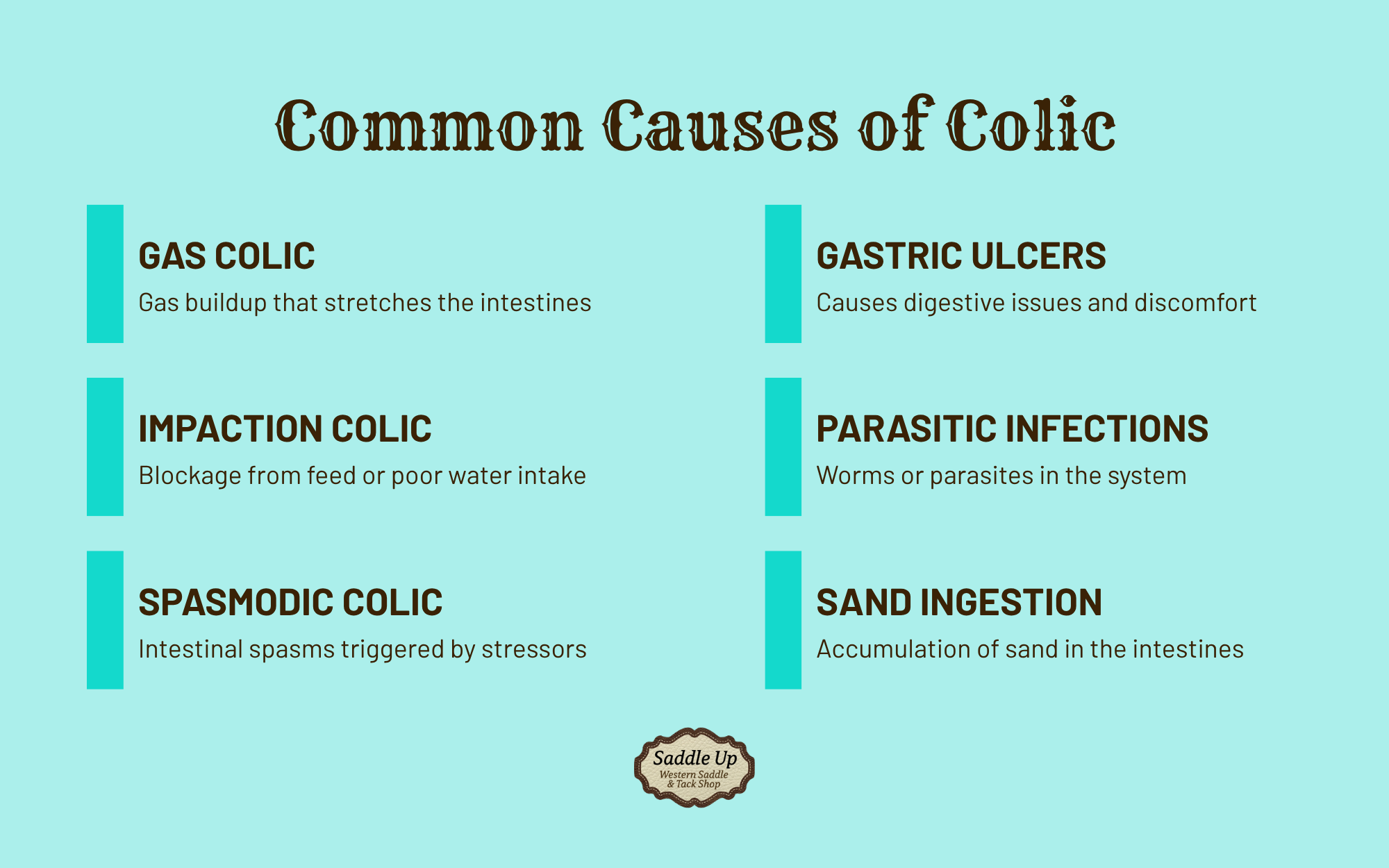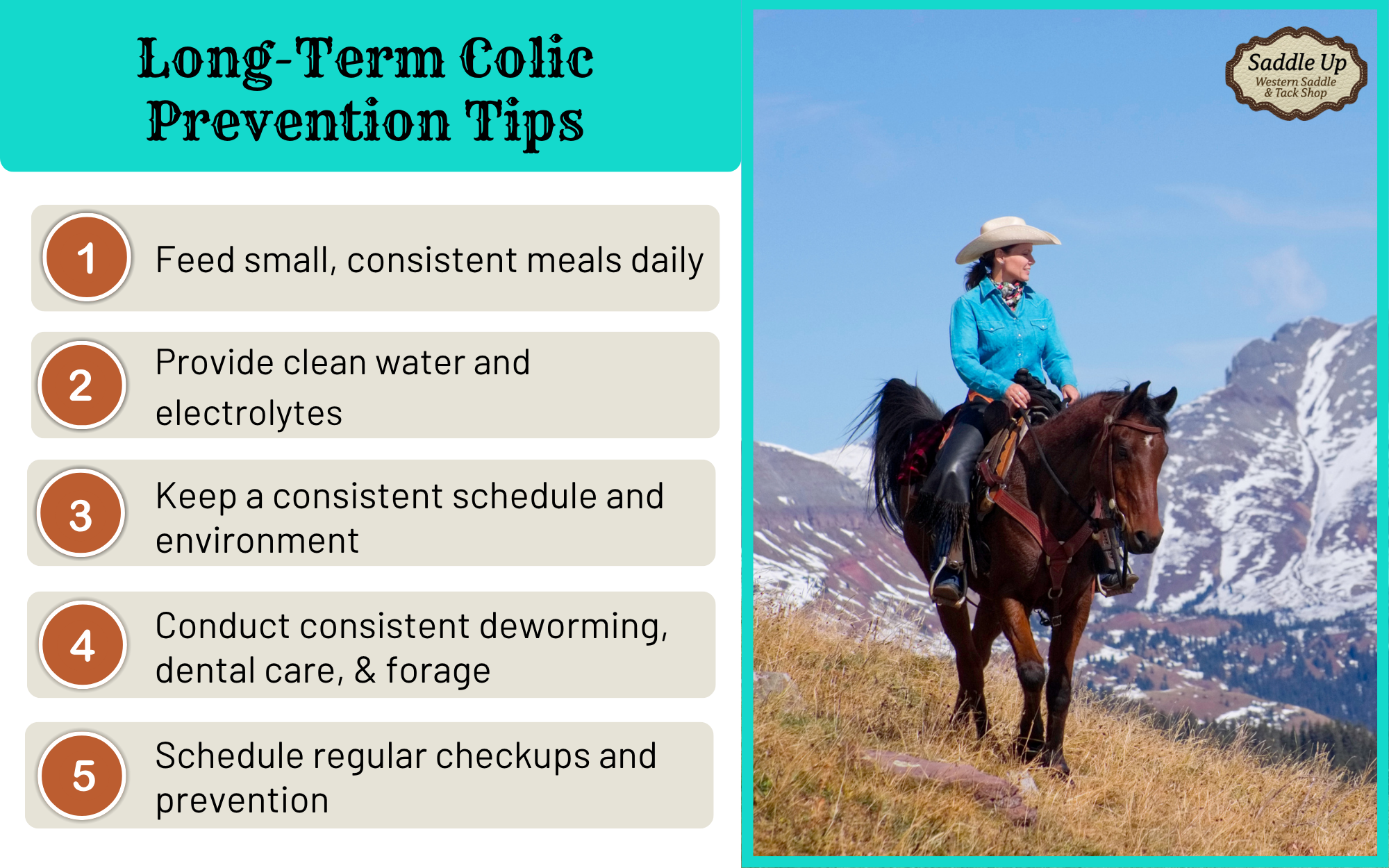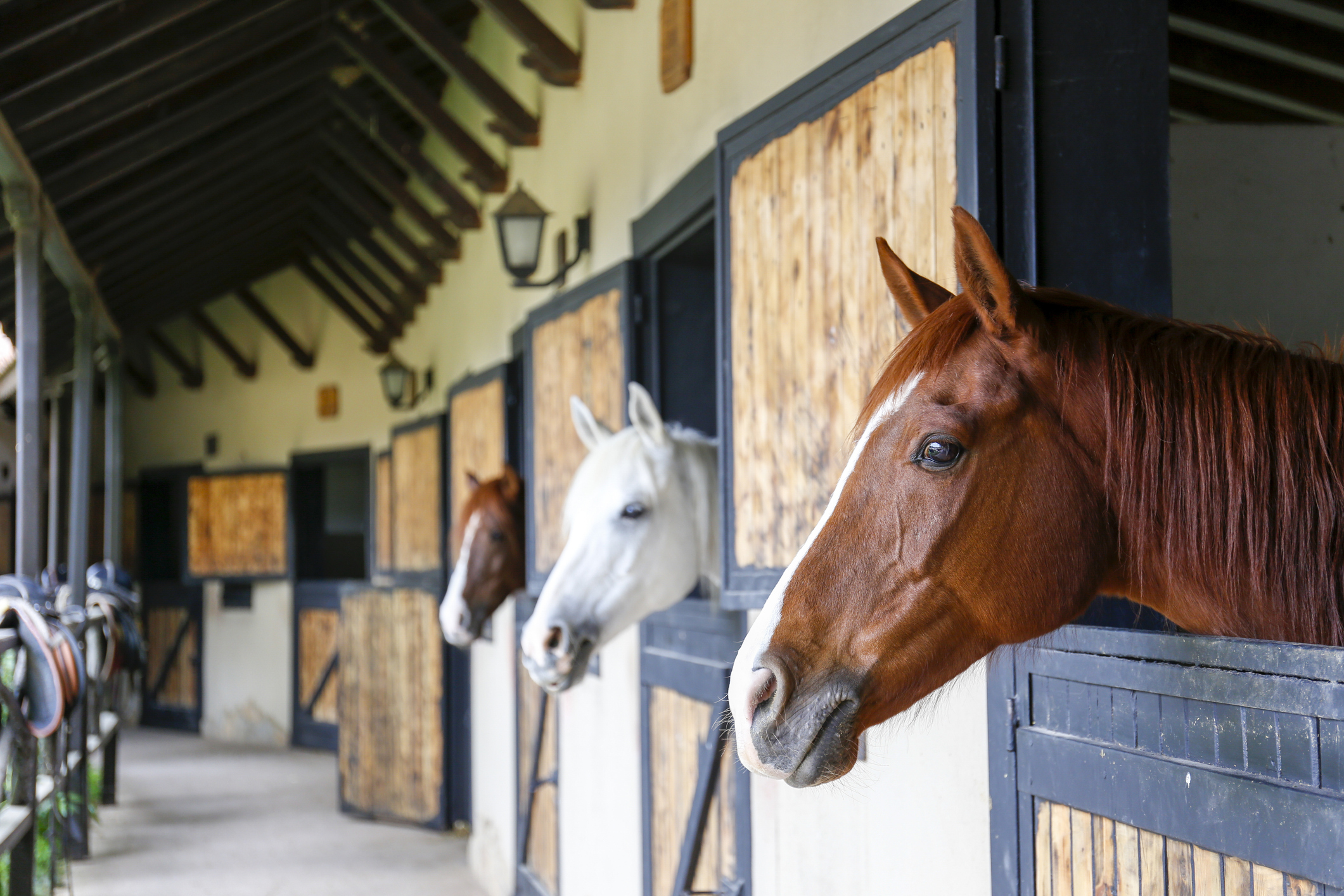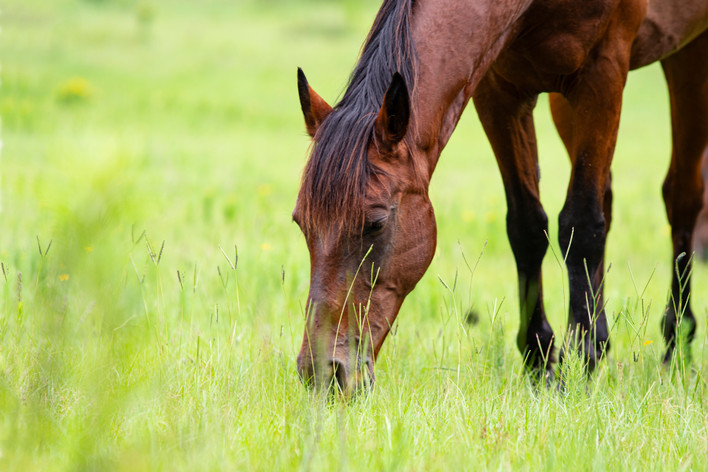Horse Colic: Signs, Treatment, & Prevention
Posted by Lynnsy Diekman - Saddle Up on Mar 2nd 2022
Colic in horses refers to abdominal pain caused by issues in the digestive tract. While it can’t always be prevented, you can help lower the risk by maintaining a consistent diet, encouraging steady water intake, monitoring symptoms, and responding quickly to signs of discomfort. Early veterinary attention and careful daily management are the best defenses against this painful condition.

Understanding Horse Colic: Causes and Types
Colic is one of the most common emergencies vets see in horses. It’s pain within the abdominal cavity, often related to problems in the gastrointestinal tract. Because a horse’s digestive system is delicate, even the smallest changes can lead to big challenges for gut function.
Common Causes
- Gas colic – Buildup of gas stretches the intestines, causing pain and restlessness.
- Impaction colic – Blockage in the small or large intestine from dry feed, sand, or poor water intake.
- Spasmodic colic – Muscle spasms in the intestines, often triggered by stress or sudden dietary change.
- Sand ingestion – Accumulation of sand in the intestines can cause irritation, inflammation, and partial blockage of the digestive tract..
- Parasitic infections – Worms or other parasites can cause inflammation and disrupt the intestinal tract.
- Gastric ulcers – Can contribute to digestive discomfort and recurrent colic-like symptoms.
In severe cases, blood supply to the intestines can become restricted, leading to tissue death and requiring surgical intervention. Cases caused by twisting of the intestines or other strangulating obstructions, often require surgery to restore blood flow and relieve pressure.
Factors that Put Your Horse at an Increased Risk of Colic
- Older age – Aging horses often have decreased gut motility and dental issues that affect digestion.
- Low activity level – Reduced movement can slow intestinal motility and increase impaction risk.
- Significant changes in activity level – Sudden increases or decreases in exercise can disrupt digestive rhythm.
- High grain intake – Diets high in grain or low in forage can upset the gut’s microbial balance.
- Abrupt changes to diet – Switching feed types, hay sources, or feeding schedules too quickly stresses the digestive system.
- Previous history of colic – Horses that have colicked before are more likely to experience it again.
- Limited access to clean water – Dehydration can lead to impaction or reduced gut motility.
- Poor dental health – Inadequate chewing increases the risk of poorly digested feed causing blockages.
- Parasite load – Internal parasites can irritate or block parts of the digestive tract.
- Stress or travel – Changes in environment or routine can affect gut function and increase colic risk.
Recognizing Early Signs of Colic in Horses
Early detection of colic symptoms helps your vet provide timely treatment. Every horse owner should be familiar with these signs:
Common Early Symptoms
- Looking repeatedly at their sides
- Biting or kicking at the abdomen
- Rolling or lying down more than usual
- Reduced manure output
- Decreased appetite or water intake
- Pawing at the ground
- Sweating or restlessness
- Changes in gut sounds
Check the Horse’s Vital Signs
Knowing how to check vital signs helps you share accurate information with your vet:
- Heart rate: Normal is 28-48 beats per minute. A faster heart rate can indicate pain.
- Respiratory rate: Normal is 8-16 breaths per minute. Faster breathing can mean distress.
- Temperature: Normal is around 99-101°F.
Having these numbers ready when you call gives your vet a clearer picture of what's happening. They may perform a rectal examination to check for gas buildup, impaction, or other issues in the digestive tract. In some cases, if your horse doesn't improve with initial treatment, surgery may be recommended.
Do's and Dont's When Your Horse Shows Symptoms
Colic symptoms can appear suddenly. Knowing what to do helps your horse get the care they need.
What You Should Do
- Check vitals: Take their temperature, listen for gut sounds by pressing your ear against their belly, and check their heart rate and breathing if you can. Having this information ready helps your vet understand how serious the problem may be and how quickly they need to respond.
- Look for manure: Check your horse’s stall or paddock for fresh manure and let your vet know what you find; this helps them determine what type of colic your horse may have .
- Call your vet: Contact them right away, even if symptoms seem mild. Describe what’s happening: behavior changes, eating habits, and manure output. Your vet will guide you through what to do next and let you know what medical treatment or pain relief to provide(only give medications they specifically recommend!)
- Monitor closely: Stay with your horse and check on them every 15 to 20 minutes reporting any changes in behavior, manure output, or symptoms back to your vet..
- Walk your horse (if advised): Gentle walking can help keep your horse from lying down or rolling, which can worsen the problem. Short, calm walks are best, don’t push them too hard or for too long. The goal is to keep them moving safely until your vet arrives.
- Manage water intake carefully: Ask your veterinarian about water access. In most cases, hydration is important, but your vet may want to manage water intake differently depending on the type of colic.
- Create a safe space: Move your horse to a safe, enclosed space where they won’t injure themselves if they become restless.
- Be ready to trailer: Have your trailer and a helper accessible in case your horse needs to be transported to a clinic for further care.
What You Shouldn’t Do
- Don’t wait it out: Using a “wait and see” approach risks complications since colic can quickly worsen.
- Don’t allow food: Avoid feeding until your vet approves it. Eating during a colic episode can complicate blockages.
- Don’t push exercise: Light walking can help (if approved by your vet), but vigorous activity or lunging can add unnecessary stress.
- Don’t medicate without your vet's approval: Pain relievers, like Banamine, are commonly used, but administering them without guidance can mask symptoms and make diagnosis more difficult.
- Don't allow excessive rolling: While some movement is normal, excessive rolling can cause the intestines to twist. Keep the horse moving gently if they’re feeling restless.

Long-Term Prevention Tips
Prevention starts with stable management, consistency, and care. A few daily habits can help support the horse’s digestive tract and reduce the chance of future colic episodes.
1. Feed Smart
- Offer small meals throughout the day instead of large quantities at once.
- Keep your horse’s diet consistent and introduce new feeds gradually over at least a week.
- Allow pasture turnout to encourage natural grazing and movement.
- Use a slow feeder to mimic natural eating patterns and support healthy gut function.
2. Maintain Proper Hydration
- Provide access to clean water at all times.
- In cold weather, offer warm water to encourage drinking.
- Add a salt block or electrolyte supplement if your vet recommends it to promote steady water intake.
3. Keep a Routine
- Stick to consistent feeding and turnout schedules.
- Minimize stressful changes to routine and environment when possible.
- Gradually adjust workloads, feed types, and housing situations.
4. Support Digestive Health
- Follow a regular deworming program recommended by your veterinarian.
- Schedule routine dental care to promote proper chewing and digestion.
- Provide plenty of forage to keep the digestive system active and balanced.
5. Partner With Your Veterinarian
- Schedule regular checkups, especially for older horses or those with a colic history
- Ask about preventive supplements and/or management strategies to support gut health.
- Learn how to check vital signs and recognize early symptoms.
Caring for Your Horse After Colic
Once your horse recovers from a colic episode, these steps help support healing and reduce the chance of recurrence:
- Follow your vet’s feeding instructions and reintroduce forage gradually.
- Keep fresh water available and watch for signs of discomfort or low energy.
- Maintain a consistent feeding schedule and routine.
- Monitor for returning symptoms in the days and weeks following the episode.
- Ask your vet about probiotics or digestive supplements if recommended for your horse.

Prevention Starts With Proper Equipment and Care
Keeping your horse healthy goes beyond feed and water management. Everyday comfort matters too – from properly fitted saddles and tack to maintaining consistent routines, every detail contributes to your horse’s wellbeing and stress levels.
At Saddle Up Colorado, we've supported the Colorado horse community since 1997 with quality saddles, tack, and equipment from trusted equine brands. Our family-owned shop in Gilcrest is here to help you find what your horse needs for comfort and performance.
Whether you're looking for new equipment or just want to talk horses, stop by our store or explore our online selection. We're here to help keep your horse healthy, happy, and ready to ride.

